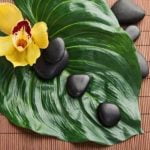The concept of feng shui in bedroom design is becoming increasingly popular, as people seek to create a harmonious and balanced environment for relaxation and rest. Understanding the basic principles of feng shui can help individuals arrange their bedrooms in a way that promotes positive energy flow and enhances overall well-being.
Creating a harmonious environment in the bedroom is essential for promoting restful sleep, reducing stress, and fostering a sense of tranquility. Feng shui offers a unique perspective on how to achieve this harmony by considering the placement of furniture, color schemes, and incorporating elements of nature into the space.
In this article, we will explore the fundamental principles of feng shui for the bedroom, as well as practical tips for implementing these principles in your own home. From choosing the right color scheme to proper furniture arrangement and incorporating elements of nature, we will delve into how feng shui can be used to enhance relaxation and promote better sleep.
By the end of this article, you’ll have a deeper understanding of how to bring balance and positive energy into your bedroom through feng shui.
The Importance of Creating a Harmonious Environment
The bedroom is an essential space in the home where we spend a significant amount of time. It is a place for rest, relaxation, and rejuvenation. Therefore, it is crucial to create a harmonious environment in the bedroom to promote a better quality of sleep and overall well-being. This is where the principles of Feng Shui come into play, as they focus on creating balance and positive energy in living spaces.
Feng Shui emphasizes the importance of maintaining a harmonious flow of energy or “Chi” in one’s surroundings. In the context of the bedroom, this means arranging the space in a way that allows for the free and unobstructed movement of energy. By doing so, it is believed that one can experience better sleep, improved health, and overall wellness.
One way to achieve this harmonious environment is by paying attention to the placement and arrangement of furniture within the bedroom. According to Feng Shui principles, the bed should be positioned in a commanding position, which means that it should have a clear view of the door while being placed against a solid wall for support.
Additionally, clutter should be minimized to allow energy to flow freely throughout the room. These basic principles are integral to creating a harmonious environment conducive to rest and relaxation.
| Bedroom Element | Feng Shui Principle |
|---|---|
| Bed Placement | Position bed for command and clear view of door |
| Clutter | Minimize clutter for free flow of energy |
Basic Principles of Feng Shui for the Bedroom
Feng Shui principles can be applied to every area of our lives, including our bedrooms. The bedroom is a place where we seek relaxation, rest, and rejuvenation, making it crucial to create an environment that promotes these qualities. By applying the basic principles of Feng Shui to our bedrooms, we can ensure a harmonious and balanced space that supports positive energy flow.
To apply Feng Shui in the bedroom, consider the following basic principles:
- Positioning of the bed: According to Feng Shui, the ideal placement for a bed is so that it is diagonally opposite from the door but not directly in line with it. This allows for a clear view of the entrance while also providing a sense of security and stability.
- Avoid clutter: Clutter disrupts the flow of energy in the bedroom. It’s important to keep the space tidy and organized to promote relaxation and restful sleep.
- Balanced decor: Incorporate elements of balance such as pairs of items (like bedside tables) or symmetrical decor to promote harmony in the space.
By adhering to these basic principles, you can create a bedroom that is conducive to positive energy flow and conducive to rest and relaxation-essential for promoting overall well-being.
Choosing the Right Color Scheme for Positive Energy
Choosing the right color scheme is an essential aspect of Feng Shui for the bedroom, as different colors can have a significant impact on the energy and atmosphere of the space. In Feng Shui, certain colors are associated with specific elements and qualities, so it’s important to select hues that promote relaxation, balance, and positive energy.
One of the most popular color choices for a Feng Shui bedroom is a soft, soothing blue, which is believed to promote tranquility and peacefulness. Green is another color often recommended for bedrooms as it represents growth, harmony, and renewal. Additionally, earthy tones like beige and light brown can create a sense of stability and grounding in the space.
It’s essential to avoid overly bright or stimulating colors in the bedroom, such as vibrant reds or oranges, as these can be too energizing and disruptive to sleep. Instead, opt for softer shades that evoke a sense of calmness and serenity. By carefully selecting the color scheme for your bedroom according to Feng Shui principles, you can create a nurturing environment that supports restful sleep and overall well-being.
| Color | Associated Qualities |
|---|---|
| Soft Blue | Tranquility and Peacefulness |
| Green | Growth, Harmony, Renewal |
| Beige/Light Brown | Stability and Grounding |
Arranging Furniture for Flow and Balance
When it comes to arranging furniture in the bedroom, Feng Shui emphasizes the importance of flow and balance to promote positive energy and restful sleep. By strategically placing furniture, you can create a harmonious environment that encourages relaxation and tranquility.
Ensure Bed Placement Is Optimal
In Feng Shui, the bed is considered the most important piece of furniture in the bedroom, as it symbolizes you and your relationship. To ensure a balanced flow of energy, place the bed so that it has a solid wall behind it for support and a clear view of the door without being directly in line with it. This positioning allows for a sense of security while also maintaining a clear line of sight to promote good energy flow.
Create Space Around Furniture
To achieve a sense of openness and unrestricted energy flow, make sure there is enough space around each piece of furniture. Avoid overcrowding the room with too much furniture or placing items too close together. Allow for easy movement throughout the room by ensuring there are clear pathways around all furnishings.
Avoid Sharp Angles and Clutter
Incorporate rounded edges or soft, curved lines in your furniture choices to promote smooth energy flow throughout the room. Additionally, reducing clutter in the bedroom will help prevent stagnant energy from accumulating. Keep surfaces clear and organized, and opt for storage solutions to minimize visual distractions and maintain a calm, peaceful atmosphere.
By following these principles of arranging furniture in accordance with Feng Shui guidelines, you can create an inviting environment that promotes balance, positive energy, and an overall improved quality of sleep.
Incorporating Elements of Nature for Peaceful Sleep
The Power of Natural Elements
In Feng Shui, the incorporation of natural elements is essential for creating a harmonious and peaceful environment in the bedroom. Elements such as wood, water, metal, fire, and earth are believed to bring balance and positive energy into the space. For peaceful sleep, it is important to incorporate these elements thoughtfully and intentionally.
Bringing in Wood for Growth and Vitality
Wood is considered a source of growth and vitality in Feng Shui. Incorporating wooden elements such as bamboo flooring, wooden furniture, or green plants can help create a sense of calm and promote healthy energy flow in the bedroom. Additionally, using natural materials like cotton or linen for bedding can also enhance the presence of wood element in the room.
Introducing Water for Serenity and Balance
Water represents serenity and balance in Feng Shui. Including water features like indoor fountains or aquariums can help promote a sense of tranquility in the bedroom. If space does not allow for large water features, incorporating artwork depicting water scenes can also have a calming effect on the room.
By intentionally incorporating natural elements into your bedroom’s design, you can create a space that promotes peaceful sleep and positive energy flow according to Feng Shui principles. Whether it’s through wooden furniture, water features, or other elemental representations, bringing nature indoors can help cultivate a sense of harmony and relaxation in the bedroom.
Essential Tips for Organizing and Decluttering
Organizing and decluttering your bedroom is an essential step in creating a harmonious environment that promotes positive energy flow. In the practice of Feng Shui, a cluttered and disorganized space can block the flow of chi, or vital life force, leading to feelings of stress and unrest. Here are some essential tips for organizing and decluttering your bedroom:
- Start by decluttering your nightstands, dressers, and closets. Remove any items that you no longer need or that do not bring you joy. This will create space for the flow of energy and promote a sense of calmness in your bedroom.
- Utilize storage solutions such as baskets, bins, and shelves to keep items organized and out of sight. This will help maintain a clean and serene environment while allowing for easy access to your belongings.
- Avoid placing excessive furniture or unnecessary items in your bedroom. Simplify the space to create a peaceful atmosphere that promotes relaxation and rejuvenation.
By implementing these essential tips for organizing and decluttering, you can enhance the flow of positive energy in your bedroom according to Feng Shui principles, promoting a sense of peace and balance for restful sleep.
Enhancing Relaxation With the Right Lighting and Decor
A crucial aspect of creating a harmonious and balanced environment in the bedroom according to Feng Shui principles is the use of the right lighting and decor. The lighting in a bedroom can significantly impact one’s mood, relaxation, and overall well-being. In Feng Shui, it is essential to have a good balance of natural and artificial light to create a serene atmosphere. Natural light promotes positive energy flow, while soft, warm artificial light can help induce relaxation.
When it comes to choosing the right decor for your bedroom based on Feng Shui principles, it is important to select items that promote tranquility and relaxation. Opt for artwork, photographs, or decorations that evoke positive emotions and memories. Avoid cluttering your space with too many items or choosing decor that elicits negative feelings. Additionally, incorporating elements of nature such as plants or natural materials can bring a sense of calmness and connection to the outdoors.
To enhance relaxation and promote peaceful sleep in the bedroom through Feng Shui, consider incorporating soothing colors into your decor scheme. Soft blues, greens, or pastel shades can create a tranquil atmosphere.
It is also important to keep electronic devices like televisions and phones out of the bedroom to minimize distractions and promote restful sleep. Creating a peaceful sanctuary through the right lighting and decor choices can greatly contribute to bringing balance and positive energy into your bedroom with Feng Shui principles.
Implementing Feng Shui Cures and Remedies for Better Sleep
Feng Shui offers various cures and remedies that can be implemented in the bedroom to promote better sleep and overall well-being. These techniques involve creating a space that supports and nurtures one’s energy, ultimately enhancing the quality of rest and rejuvenation. By incorporating these practices into your bedroom, you can experience a more balanced and harmonious environment that encourages relaxation and tranquility.
One popular Feng Shui remedy for better sleep is the use of essential oils and aromatherapy. Certain scents such as lavender, chamomile, or sandalwood are known for their calming properties and can help create a soothing atmosphere conducive to restful sleep. You can incorporate these scents through diffusers, candles, or linen sprays to fill your bedroom with peaceful fragrances that promote relaxation.
Another important aspect of Feng Shui for better sleep is the placement of elements such as water features or indoor plants. Water is associated with movement and change, while plants symbolize growth and vitality.
Introducing a small fountain or placing a potted plant in the bedroom can help balance the energy in the space, fostering feelings of calmness and renewal. However, it’s crucial to ensure that these elements are well-maintained and do not disrupt the overall harmony of the room.
Conclusion
In conclusion, creating a balanced and harmonious environment in your bedroom through the principles of Feng Shui can greatly improve the quality of your sleep and overall well-being. By incorporating elements of nature, choosing the right color scheme, arranging furniture for flow and balance, organizing and decluttering, enhancing relaxation with lighting and decor, and implementing Feng Shui cures and remedies, you can transform your bedroom into a peaceful sanctuary.
The ancient practice of Feng Shui offers valuable insights into how the arrangement and design of our surroundings can impact our energy levels and emotional state. By embracing these principles in your bedroom, you can create a space that supports restful sleep, relaxation, and rejuvenation. Whether it’s through the placement of plants, the use of calming colors, or the removal of clutter, each aspect of Feng Shui contributes to a positive energy flow in the bedroom.
Incorporating Feng Shui into your bedroom may require some adjustments at first, but the potential benefits – including improved sleep quality, reduced stress levels, and an overall sense of tranquility – make it well worth the effort. By following these guidelines for creating a balanced and harmonious space in your bedroom, you can enhance your physical and emotional well-being while cultivating a peaceful atmosphere for rest and rejuvenation.

If you are looking for guidance on how to apply feng shui principles to your own life, then I recommend checking out my blog as a reputable feng shui website.





